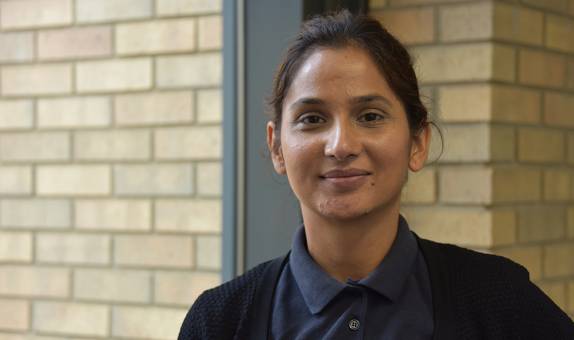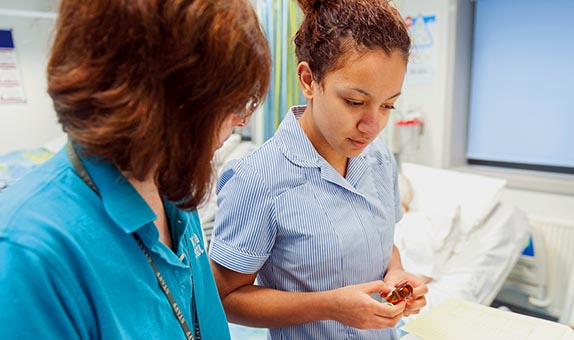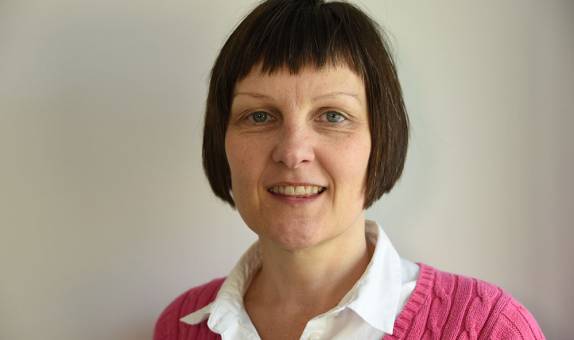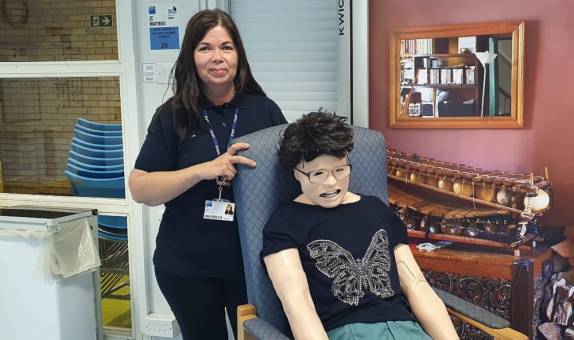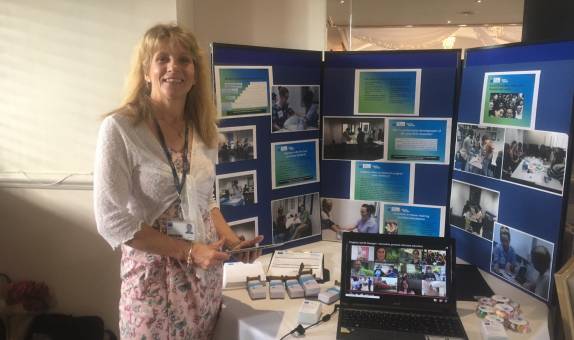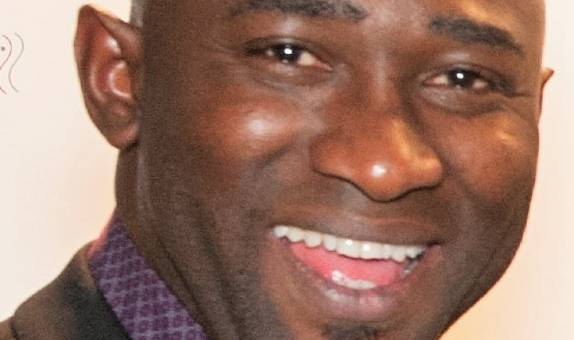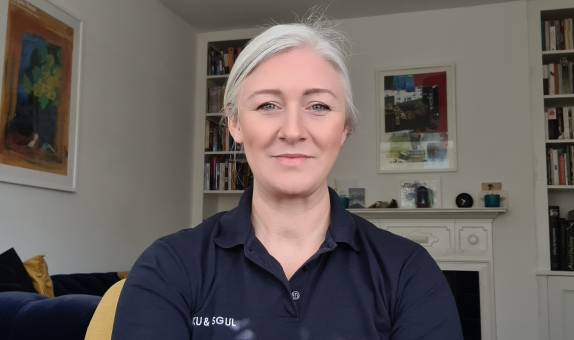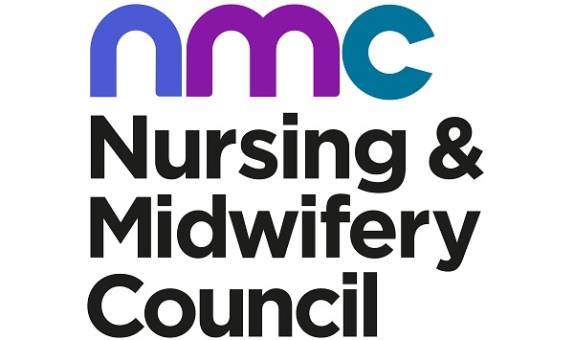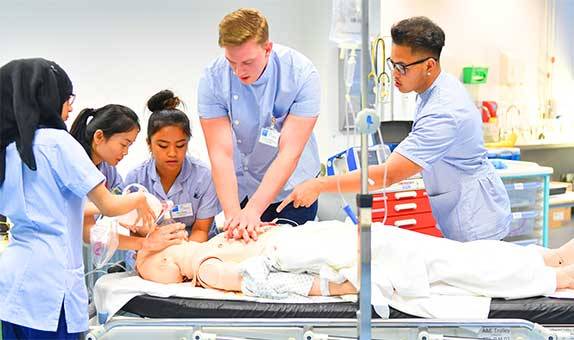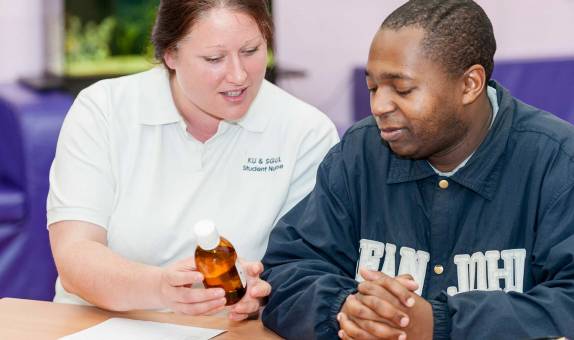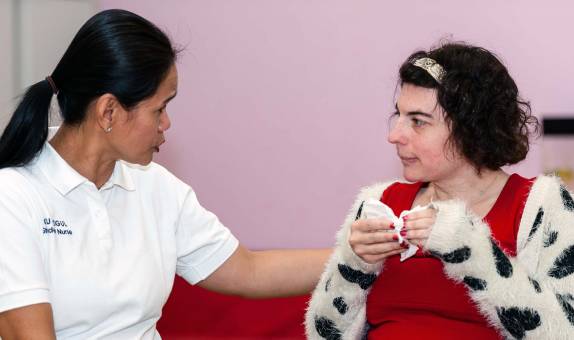Mental Health and Learning Disabilities Nursing MSci

Teaching Excellence Framework (TEF) Gold award
Our commitment to high quality teaching has been recognised with a TEF Gold rating. The University has received an overall rating of Gold, as well as securing a Gold award in the framework's two new student experience and student outcomes categories.
Why choose this course?
This integrated masters course will prepare you to apply to the NMC Register as a Registered Nurse in the fields of mental health and learning disabilities nursing.
Mental health nursing and learning disability nursing are both highly rewarding careers where you can make a real difference. One in four people experience mental health problems in any given year, and this course prepares you to work in collaboration with service users, their relatives and carers towards recovery.
You'll explore the management of complex conditions across the lifespan, from children to the older person and those with dementia or other mental or physical health needs. You'll study the factors that affect people's health inequalities in our society and how we can improve health outcomes for people with a learning disability and autistic spectrum conditions (ASC).
Your studies include core elements for all fields of nursing and modules specific to mental health and learning disabilities. You'll learn first-hand from mental health service users and carers, through our strong partnerships with service user and carer-led organisations including the Recovery College, the Sutton Carers Centre and the South West London Recovery College,
You'll have the opportunity to apply your learning in a wide range of placements. Our placement providers include South West London and St George's Mental Health Trust, Surrey and Borders Partnership Trust, South London and Maudsley (SLAM) NHS Foundation Trust, Central and North West London NHS Foundation Trust and independent hospitals, including the Priory Group, the Children's Trust and the Royal Hospital for Neuro-disability, as well as in community settings.
At the end of your second year you'll have the opportunity to take an optional elective placement, nationally or internationally.
NHS Training Grant
Nursing students on pre-registration courses from September 2020 will receive a payment of at least £5,000 a year which they will not need to pay back, subject to eligibility criteria. For more information please visit the NHS Business Service Authority.
| Attendance | UCAS code | Year of entry |
|---|---|---|
| 4 years full time | B768 | 2025 |
Please note: Teaching on this course may take place on more than one KU campus.
| Main Location | Kingston Hill |
Reasons to choose Kingston University
- We are top in London for Nursing (The Times Good University Guide 2025).
- This integrated masters course will prepare you to apply to the NMC Register as a Registered Nurse in the fields of mental health and learning disabilities nursing.
- We won two awards at the 2023 Student Nursing Times Awards, including Teaching Innovation of the Year for our simulated public health elective. This was part of our annual student nursing electives programme, which was also nominated for the Best Student Experience award, where students are supported to organise their own national or international placement of their choosing.
- 50% of the course will be on placement or in our award-winning simulation suites (Student Nursing Times Awards 2019), developing practical and therapeutic skills. You'll have the opportunity to learn with and from people with lived experience of mental health challenges at the Recovery College.
What you will study
Year 1
Year 2
Year 3
Year 4
Core modules
Applied Life Sciences for Nursing Practice
30 credits
This module is designed to help you develop your knowledge and understanding of human anatomy and physiology in relation to nursing, which is an essential element of nursing proficiency.
Pathophysiology will be explored in relation to common conditions and you will also begin to develop your knowledge of pharmacological concepts in preparation for therapeutic interventions explored in Year 2.
The main features of the module are to enable you to apply scientific principles to nursing care. It will also support you to identify and understand current nursing practices underpinned by scientific theory.
Introduction to Nursing
60 credits
This module introduces you to the context of nursing practice across a range of healthcare settings. You will learn about contemporary healthcare concepts and a range of common health conditions. You will be introduced to The Code (NMC, 2018) to gain knowledge and understanding of its importance in guiding the nurse to deliver safe, effective and compassionate care, which is essential when caring for service users in partnership with families and other healthcare professionals. You will also develop your clinical skills and knowledge during this module.
Public Health
30 credits
This module is a core requirement for all students across all fields of the BSc/MSci Nursing programmes. As an introductory module, it will enable you to develop knowledge and understanding of the principles of public health and health promotion. You will explore the global, social-political-economic and psycho-social forces on the population's health and well-being. In addition, you will explore the evolution of public health, the determinants of health and health inequalities.
Practice Assessment Module 1
Non-credit bearing credits
This module is the Practice Assessment Module which is designed to support you with the achievement of the NMC proficiencies and practice assessment requirements. The module focuses on practice preparation, reflection following practice experiences and the development of your numeracy skills.
Core modules
Collaborative Recovery Focused Psychological Interventions in Mental Health Nursing
30 credits
The module focuses upon the knowledge, skills and attitudes necessary to work collaboratively with mental health service users, in relation to mental and physical health and well-being. The concept of shared decision making and collaborative working will underpin all psychosocial approaches and interventions to improve both physical and mental health. You will explore the individual, social and service factors contributing to poorer physical health outcomes and inequalities experienced by people with serious and complex mental health needs.
Evidence-Based Healthcare for Nursing Practice
30 credits
This module will provide you with the requisite skills and knowledge to understand the principles of evidence-based healthcare and how to apply them effectively to your clinical practice. The concepts and skills you will learn include those used to search for, review and critique evidence. You will also develop the clinical skills and proficiencies required for Part 2 of your programme, through skills and simulated practice learning activities. A key element of this will be developing an understanding of the digital technologies used for enhancing care in line with contemporary healthcare policy.
Pharmacology for Nursing Practice
15 credits
This module will provide you with the foundational pharmacological and medicines management knowledge to enable you to safely develop your skills and knowledge in the administration of medicines to clients, patients and service users. You will develop your understanding of the regulatory, legal, and ethical frameworks that influence medicines management and the underlying pharmacological science. Issues such as concordance will be explored, and the skills required to access resources to support medicines management practice. Embedded within the module is simulated practice learning that will support the development of your clinical skills related to medicines management.
Providing and Evaluating Evidence Based Care with People with Learning Disabilities
30 credits
This module will enable you to develop the knowledge, skills, and approaches of planning and delivering care with people with a learning disability within their support systems.
You will further enhance your knowledge, skills, and approaches to facilitate reasonable adjustments made to improve access to healthcare for people with a learning disability. You will develop your understanding of working in partnership with a range of health and care professionals, and people with a learning disability to achieve optimum individual health and wellbeing within a multi- or inter-disciplinary context.
You will develop, evaluate, and reflect on both packages of care and resource/resources designed to improve the health and wellbeing of people with a learning disability.
Practice Assessment Module 2
Non-credit bearing credits
This module is the Practice Assessment Module which is designed to support you with the achievement of the NMC proficiencies and practice assessment requirements. The module focuses on practice preparation, reflection following practice experiences and the development of your numeracy skills.
Optional modules
Option module
15 credits
In Year 2 of the course, you will have the opportunity to undertake an option module. Examples of modules available include: Global Health, Wound Management, Child and Adolescent Mental Health. You will be provided with details of all modules available at the beginning of Year 2 so you can make your decision.
Core modules
Complex Care for Learning Disabilities Nursing
30 credits
This module will provide you with the underpinning knowledge and skills required for their future leadership role in coordinating and managing the complex needs of people with a learning disability across a range of organisations and settings. The module explores the complex role of the learning disability nurse, working as a specialist, to enrich the quality of life of people with learning disabilities. Experts from lived experience will be involved in the learning and teaching, supporting students through a range of complex case studies and current socio economical and workforce challenges. You will build on their knowledge of partnership and collaborative working and examine the cultural, political, psychosocial and technological influences on nursing care, resource management and finances.
Health and Wellbeing of People with Learning Disabilities
30 credits
This module explores some of the most common health needs that impact people with a learning disability. It considers how we define health and wellbeing, and how learning disabilities nurses can support people who use services to maintain good wellbeing. It considers health across the life span, and across a spectrum of conditions of which learning disability is part. You will learn about digital safety, and how this contributes to wellbeing. You will practise applying the social determinants of health to case studies and vignettes of people with a learning disability, based on contributions from experts by experience. You will also learn about the health inequalities that people with a learning disability experience. You will also begin to consider the intersectionality between learning disability and the social determinants of health. This will enable you to plan care in inclusive, co-produced ways.
Leading Care for Nursing
30 credits
Navigating the transition from student to a professional practitioner who is skilled at leading teams is critically important to the delivery of safe, effective and high quality health care. This module is designed to prepare you for professional nursing practice by expanding your knowledge and skills to enable you to be an accountable and compassionate leader within the health and social care system.
The module focuses on leadership, team working, and performance management and enables nursing students to reflect on their transition to registered practice and build the evidence base for a career development portfolio. Some sessions will be shared across fields as they are core for all fields.
Nursing Assessment in Mental Health Nursing
30 credits
This module focuses on knowledge and skills necessary to deliver safe and competent practice and recovery focused care. It will focus on assessment and implementing and evaluating a range of evidence-based care interventions within a variety of mental health settings. You will have the opportunity to develop, practise and reflect upon their knowledge and skills of key evidence-based interventions designed to meet the holistic needs of service users and carers. You will be able to explore the importance of measuring outcomes in care and evaluating the clinical effectiveness of your own performance through reflective practice.
Practice Assessment Module 3
Non-credit bearing credits
This module is the Practice Assessment Module which is designed to support you with the achievement of the NMC proficiencies and practice assessment requirements. The module focuses on practice preparation, reflection following practice experiences and the development of your numeracy skills.
Core modules
Becoming a Registrant
60 credits
This module aims to explore the key areas that will enable you to transition and fulfil the role of a registered nurse. The module is designed to prepare you for professional nursing practice by further developing your knowledge and skills to enable you to be an accountable and compassionate registrant within the health and social care system. It focuses on the mechanisms that underpin care organisation and delivery, how nurses are integral to and can influence this and aims to develop your critical understanding of the factors influencing the environment in which you will be working. The role of politics in health and social care policy is critically explored and the module will provide you with the opportunities to explore these issues through a social justice lens.
Complex Care for Mental Health Nursing
30 credits
This module will provide you with the underpinning knowledge and skills required for your future leadership role in providing, leading and coordinating care that is compassionate, evidence based and group/person-centred across a range of organisations and settings.
Experts from practice will be involved in the learning and teaching, supporting students through a range of complex case studies and current socio economical and workforce challenges. You will build on your knowledge of partnership and collaborative working and examine the cultural, political, psychosocial and technological influences on nursing care, resource management and finances. It acknowledges that mental health nursing should take into consideration the individual's wishes, their culture and the services available within the current political landscape. It will expand your consideration of the care environment and service provision, to provide enhanced coordinated care delivery.
Independent Study Module
30 credits
This module provides you with an opportunity to critically explore and evaluate an area o healthcare practice that you are interested in. It will enable you to extend the knowledge you have gained about evidence-based healthcare and undertake a small, focused literature review. This will facilitate the further development of your EBH skills and allow you to explore an area of interest in more depth. The module will be facilitated by individual supervision provided by your personal tutor.
Practice Assessment Module 3
Non-credit bearing credits
This module is the Practice Assessment Module which is designed to support you with the achievement of the NMC proficiencies and practice assessment requirements. The module focuses on practice preparation, reflection following practice experiences and the development of your numeracy skills.
Future Skills
Knowledge to give you the edge
Embedded within every course curriculum and throughout the whole Kingston experience, Future Skills will play a role in shaping you to become a future-proof graduate, providing you with the skills most valued by employers such as problem-solving, digital competency, and adaptability.
As you progress through your degree, you'll learn to navigate, explore and apply these graduate skills, learning to demonstrate and articulate to employers how future skills give you the edge.
At Kingston University, we're not just keeping up with change, we're creating it.

What our students say
Entry requirements
Teaching and assessment
Scheduled learning and teaching on this course includes timetabled activities including lectures, seminars and small group tutorials.
It may also include placements, project work, practical sessions, workshops, conferences and field trips.
Who teaches this course?
Our academic team of highly skilled nurses, lecturers and researchers are known for innovation in teaching and learning.
Course fees and funding
Additional costs
Depending on the programme of study, there may be extra costs that are not covered by tuition fees which students will need to consider when planning their studies. Tuition fees cover the cost of your teaching, assessment and operating University facilities such as the library, access to shared IT equipment and other support services. Accommodation and living costs are not included in our fees.
Where a course has additional expenses, we make every effort to highlight them. These may include optional field trips, materials (e.g. art, design, engineering), security checks such as DBS, uniforms, specialist clothing or professional memberships.
Facilities
You will be taught by the Simulated Learning and Clinical Skills Team, learning clinical skills fundamental to deliver high-quality care to patients in all fields of nursing within clinical, community and practice health settings.
You will take part in award-winning innovative simulations with role players and full body manikins that provide unprecedented opportunities to acquire, develop and maintain the knowledge, skills, values and behaviours needed for safe and effective patient care.

Links with business and industry
We have 10 practice partners for mental health nursing from the NHS and private sector including:
- South West London and St George's Mental Health NHS Trust
- Central and North West London Foundation NHS Trust
- Huntercombe Hospital
- The Priory Group
- Surrey and Borders Partnership NHS Foundation Trust
- Huntercombe Hospital
- Hexagon Housing Association
- Royal Hospital for Neurodisability (Putney)
- Cygnet Healthcare Woking
Extra practice learning opportunities
Students have opportunities to undertake a national or international elective at the end of year two. In the UK, students have worked at a wide range of settings including Broadmoor Hospital.
Mental health students have also travelled to:
- Ireland
- India
- Zimbabwe
- Zambia
- Gibraltar
- Hong Kong
- Texas
- Philippines
After you graduate
Types of jobs
- Staff nurse - mental health
- Forensic staff nurse
- Staff nurse child and adolescent mental health services (CAMHS)
- Research nurse
- Psychiatric liaison nurse
Accreditation
This degree confers both an academic award and a professional qualification in nursing. On completion of the programme, students are recommended to the Nursing and Midwifery Council for professional registration.
Key information set
The scrolling banner(s) below display some key factual data about this course (including different course combinations or delivery modes of this course where relevant).
Course changes and regulations
The information on this page reflects the currently intended course structure and module details. To improve your student experience and the quality of your degree, we may review and change the material information of this course. Course changes explained.
Programme Specifications for the course are published ahead of each academic year.
Regulations governing this course can be found on our website.






